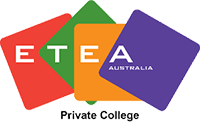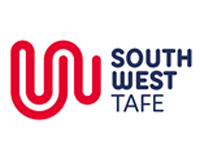
How do I become a youth counsellor?
Diploma of Counselling
- There are no mandated entry requirements.




Certificate IV in Youth Work
- There are no mandated entry requirements.


Diploma of Youth Work
- There are no mandated entry requirements.
 Hader Institute of Education
Hader Institute of Education
Course in Identifying and Responding to Family Violence Risk
- There are no mandated entry requirements.
 genU Training
genU Training
Diploma of Child, Youth and Family Intervention
- There are no mandated entry requirements.
 SAL Consulting
SAL Consulting
Certificate IV in Child, Youth and Family Intervention
- There are no mandated entry requirements.








Bachelor of Youth Work
- There are no mandated entry requirements.



Diploma of Community Services (Child, Youth and Family Welfare)
- There are no mandated entry requirements.


Graduate Certificate of Counselling
- There are no mandated entry requirements.






Related occupations
Student Counsellor
A Student Counsellor supports students through academic, personal, and family issues, working in schools or community organisations, requiring strong interpersonal skills.
Mental Health Worker
A Mental Health Worker supports individuals with mental health issues by building rapport, maintaining case notes, and developing treatment plans.
Substance Abuse Counsellor
Substance Abuse Counsellors treat addiction patients, developing support plans tailored to individual needs and circumstances while collaborating with their support networks.
Social Worker
Social workers assist individuals and communities in overcoming challenges related to health, income, and social issues, offering resources and policy support.
Family Counsellor
Family Counsellors support families in crisis, focusing on individual and collective wellbeing while employing various therapeutic interventions.
Support Worker
A Support Worker aids individuals and families facing difficulties by providing practical and emotional assistance in various settings.
Marriage Counsellor
Marriage Counsellors help couples resolve conflicts and navigate relationship challenges, including transitions and grief, in various settings.
Relationship Counsellor
Relationship Counsellors help individuals, couples, and families resolve relationship issues and improve communication skills across various contexts.
Rehabilitation Counsellor
Rehabilitation Counsellors assist individuals facing challenges from disability, injury, or addiction by developing tailored plans and resources.
Psychotherapist
Psychotherapists assist clients in overcoming emotional and mental health issues by conducting assessments and developing tailored treatment plans.
Counsellor
Counsellors assist clients in addressing personal issues like relationships, mental health, and addictions using recognised therapeutic techniques.
Family Dispute Resolution Practitioner
A Family Dispute Resolution Practitioner assists families in resolving conflicts related to parenting, property, or finance through mediation.
Life Coach
A Life Coach helps clients achieve personal or professional goals, develop plans, understand behaviours, and improve decision-making skills.
Art Therapist
An Art Therapist uses creative arts to support clients' emotional well-being, developing treatment plans and collaborating with professionals.
Music Therapist
A Music Therapist uses music to enhance well-being, develops therapy plans, conducts sessions, assesses progress, and collaborates with healthcare teams.
Mental Health Support Worker
A Mental Health Support Worker aids individuals with mental health issues, offering daily support, care plans, and collaboration with healthcare teams.
Trauma Counsellor
Trauma Counsellors support clients recovering from trauma and PTSD using therapeutic techniques to foster healing and resilience.
Drug and Alcohol Counsellor
Drug and Alcohol Counsellors assist individuals and families struggling with substance addiction, guiding them through recovery and interventions.
Crisis Support Worker
A Crisis Support Worker provides emotional support and guidance to individuals facing immediate crises, assessing needs and connecting them with resources.
Philosophy Teacher
A Philosophy Teacher instructs on philosophical theories, ethical dilemmas, and critical thinking, fostering independent thought through discussions and assessments.
Mental Health Advocate
A Mental Health Advocate supports individuals by promoting their rights, accessing services, and navigating mental health systems with empathy and guidance.
Child Psychologist
Child Psychologists provide therapy and counselling to children, teens, and families, addressing trauma, mental health, disabilities, and developmental issues.
Behaviour Therapist
Behaviour Therapists help people make positive behaviour changes using various therapies, like CBT and hypnotherapy, to treat diverse issues.
Mental Health Practitioner
Mental Health Practitioners assess, support, and manage individuals with mental health issues, including crisis intervention, counselling, and care planning.
Career Counsellor
Career Counsellors assist students and job seekers in identifying their ideal career paths, offering guidance on skills, qualifications, and job opportunities.
Guidance Counsellor
Guidance Counsellors support students, teachers, and parents in Australian schools, aiding emotional wellbeing and academic success.
Mental Health Clinician
Mental Health Clinicians develop care plans and support patients through assessments, therapy, and crisis intervention for mental health issues.
Mental Health Social Worker
Mental Health Social Workers provide counselling and therapeutic support to clients, helping them recover from mental illness and trauma.
Crisis Counsellor
Crisis Counsellors provide urgent support to individuals in distress, offering interventions and counselling to those facing emergencies, often via phone or online.
Grief Counsellor
Grief Counsellors support clients through bereavement using effective therapies and may refer those with prolonged grief for medical treatment.
Mental Health Counsellor
Mental Health Counsellors provide counselling and psychotherapy services to clients, either in-person or through telecounselling formats.
Common questions
How much do Youth Counsellors earn?
In Australia, a full time Youth Counsellor generally earns $1,500 per week ($78,000 annual salary) before tax. This is a median figure for full-time employees and should be considered a guide only. As you gain more experience can you expect a higher salary than people who are new to the industry.
What are the job opportunities for Youth Counsellors?
There are approximately 12,300 Youth Workers and Counsellors employed in Australia right now. They are mostly employed by government departments, healthcare facilities, schools and community service organisations.
Source: Australian Government Labour Market Insights
How do I become a Youth Counsellor?
Youth Counsellors usually need a bachelor’s degree in social work or psychology, but you could also get started with a Diploma of Counselling and a Certificate IV of Youth Work. The Diploma takes 12 months to complete and requires a work placement. You will also require a national police check and working with children clearance.
Further reading


How to start a career in counselling
7th September 2020)

